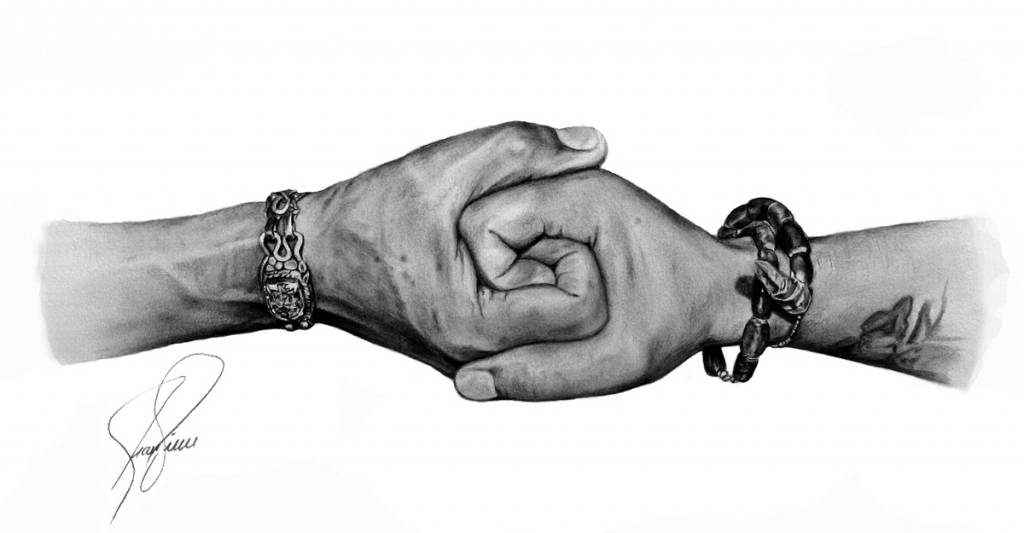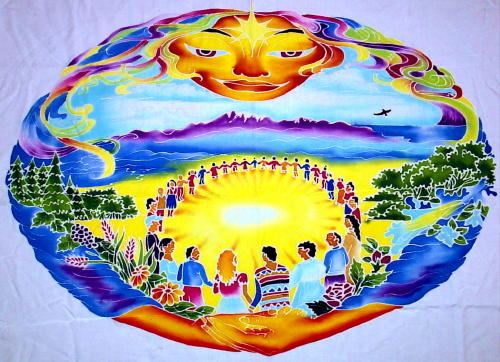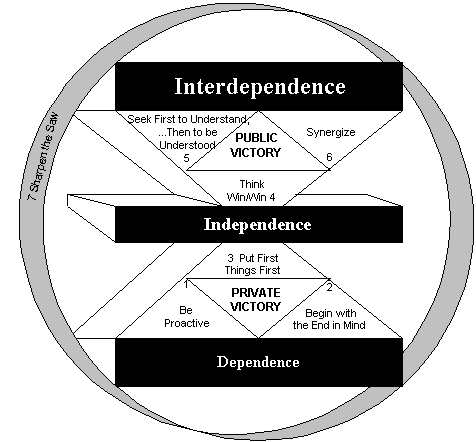
ETHICS AND VALUES I
I am Ana Lilia Acosta Patoni, your Teacher, and it is a pleasure to meet you!
Welcome to this site of our Ethics and Values Course I
Browse this site and I am sure we will learn so much together!
The General OBJECTIVES:
To develop reflection as basic element for decision making and the relationship of the individual to society, to identify problems to their immediate surroundings reflect on possible solutions with an invidious position, critical and sympathetic, in an atmosphere of tolerance, respect and solidarity.
In this course we will learn to answer questions like:
What should I do? Is it right or wrong?
What is the best way to live and what is the fair way to live in relationship with oneself and with others?
We will learn to understand and expand our consciousness.
It will be less difficult to choose the correct thing to do when we are in front of a dilemma and we do not know what to do… according to our principles, values and ethics. We will understand better why other people behave differently, because they are probably from another culture or another country?
We will , for example, get to know the value of “respect”: Respect is to know the worth and honor the courage of others is the true way to earn respect.
Respect is the recognition of the inherent worth and innate rights of individuals and society.
With the understanding of the self is experienced the true self-respect…
So, are you ready to start this wonderful experience?
MODULES:
OBJECTIVES : Develop reflection as basic element for decision making and the relationship of the individual to society, to identify problems to their immediate surroundings reflect on possible solutions with an invidious position, critical and sympathetic, in an atmosphere of tolerance, respect and solidarity.
1. - Ethics as a philosophical discipline.
1.1. Ethics and Philosophy
1.2. Ethics and morals
1.3. Branches of Philosophy
1.4. Value judgments.
. . 2. - Specific problems related to the practice of values that occur at local and national level.
2.1. Moral judgment
2.2. The ethical problem
2.3. Decision, thought,and action congruence.
2.4. Autonomy and heteronomy
2.5. - Classification and hierarchy values
2.6. Virtues
2.7. Liberty, equality, justice and prudence
3. - Respect for human rights.
3.1. Society, the state and democracy
3.2. Characterization of democracy
3.3. Obstacles to democracy
3.4. Rule of law and legality
3.5 Right to life, property and liberty
3.6. Undemocratic practices
3.7. Characterization of Human
Rights.
4. - The importance of respecting national identity to the phenomena associated with globalization 4.1. Culture.
4.2. Individual and collective identity
4.3. Multiculturalism and interculturalism
4.4. The diversity of cultural events in Mexico
1. - Ethics as a philosophical discipline. 1. - Ethics as a philosophical discipline.
1.1. Ethics and Philosophy
ETHICS is the study of values, of how we ought to live.
• Denotes systematic, rational reflection upon a particular behavior.
• a system of moral principles
VALUES - Are defined as standards or ideals which serve as guides or standards (principles) by which we live and make decisions .
MORALS . . . practical applications of ethical principles. . . . modes of conduct Moral standards exist in the consciousness of each of us
The moral codes are not the same as legal codes. The moral standards adn legal laws sometimes have opposite contents.
Moral codes are diverse and changing over time. A difference between the moral and legal laws is that compliance with a legal bill refers on consideration of the consequences by law.
CONSCIENCE is the notion we have of sensations, thoughts and feelings that are experienced at a particular time. It is the understanding of our environment and the inner world to the other.
We are the result of our actions.
EXAMPLES OF NON-MORAL AND MORAL
MORAL.- as a policy.-
We call the set of moral rules to regulate human behavior in terms of the general good
Examples: 1.-The rules and institutions, 2.- rules.
MORAL .- as description.-
It functions as an adjective is attributed to a subject property to reattach rules conducive to the general good
Examples: 1.- To have good relations with everyone. Give respect and welcome, accepted, having a family, participate in elections, etc.
INMORAL.-
It is attributed to a subject property to violate moral norms
Examples: steal, kill, throw garbage in inappropriate places, hitting, do unseemply things on public roads
NO MORAL: Nothing to do with Ethics and morality.-
AMORAL:
Applies who lacks discretion to distinguish what is right from what is wrong,
Examples: children, mentally ill.
What is Ethics?
Ethics is a branch of philosophy ...
I am Ana Lilia Acosta Patoni, your Teacher, and it is a pleasure to meet you!
Welcome to this site of our Ethics and Values Course I
Browse this site and I am sure we will learn so much together!
The General OBJECTIVES:
To develop reflection as basic element for decision making and the relationship of the individual to society, to identify problems to their immediate surroundings reflect on possible solutions with an invidious position, critical and sympathetic, in an atmosphere of tolerance, respect and solidarity.
In this course we will learn to answer questions like:
What should I do? Is it right or wrong?
What is the best way to live and what is the fair way to live in relationship with oneself and with others?
We will learn to understand and expand our consciousness.
It will be less difficult to choose the correct thing to do when we are in front of a dilemma and we do not know what to do… according to our principles, values and ethics. We will understand better why other people behave differently, because they are probably from another culture or another country?
We will , for example, get to know the value of “respect”: Respect is to know the worth and honor the courage of others is the true way to earn respect.
Respect is the recognition of the inherent worth and innate rights of individuals and society.
With the understanding of the self is experienced the true self-respect…
So, are you ready to start this wonderful experience?
- YES!
- Let´s start! Here we go!
MODULES:
OBJECTIVES : Develop reflection as basic element for decision making and the relationship of the individual to society, to identify problems to their immediate surroundings reflect on possible solutions with an invidious position, critical and sympathetic, in an atmosphere of tolerance, respect and solidarity.
1. - Ethics as a philosophical discipline.
1.1. Ethics and Philosophy
1.2. Ethics and morals
1.3. Branches of Philosophy
1.4. Value judgments.
. . 2. - Specific problems related to the practice of values that occur at local and national level.
2.1. Moral judgment
2.2. The ethical problem
2.3. Decision, thought,and action congruence.
2.4. Autonomy and heteronomy
2.5. - Classification and hierarchy values
2.6. Virtues
2.7. Liberty, equality, justice and prudence
3. - Respect for human rights.
3.1. Society, the state and democracy
3.2. Characterization of democracy
3.3. Obstacles to democracy
3.4. Rule of law and legality
3.5 Right to life, property and liberty
3.6. Undemocratic practices
3.7. Characterization of Human
Rights.
4. - The importance of respecting national identity to the phenomena associated with globalization 4.1. Culture.
4.2. Individual and collective identity
4.3. Multiculturalism and interculturalism
4.4. The diversity of cultural events in Mexico
1. - Ethics as a philosophical discipline. 1. - Ethics as a philosophical discipline.
1.1. Ethics and Philosophy
ETHICS is the study of values, of how we ought to live.
• Denotes systematic, rational reflection upon a particular behavior.
• a system of moral principles
VALUES - Are defined as standards or ideals which serve as guides or standards (principles) by which we live and make decisions .
MORALS . . . practical applications of ethical principles. . . . modes of conduct Moral standards exist in the consciousness of each of us
The moral codes are not the same as legal codes. The moral standards adn legal laws sometimes have opposite contents.
Moral codes are diverse and changing over time. A difference between the moral and legal laws is that compliance with a legal bill refers on consideration of the consequences by law.
CONSCIENCE is the notion we have of sensations, thoughts and feelings that are experienced at a particular time. It is the understanding of our environment and the inner world to the other.
We are the result of our actions.
EXAMPLES OF NON-MORAL AND MORAL
MORAL.- as a policy.-
We call the set of moral rules to regulate human behavior in terms of the general good
Examples: 1.-The rules and institutions, 2.- rules.
MORAL .- as description.-
It functions as an adjective is attributed to a subject property to reattach rules conducive to the general good
Examples: 1.- To have good relations with everyone. Give respect and welcome, accepted, having a family, participate in elections, etc.
INMORAL.-
It is attributed to a subject property to violate moral norms
Examples: steal, kill, throw garbage in inappropriate places, hitting, do unseemply things on public roads
NO MORAL: Nothing to do with Ethics and morality.-
AMORAL:
Applies who lacks discretion to distinguish what is right from what is wrong,
Examples: children, mentally ill.
What is Ethics?
Ethics is a branch of philosophy ...
|
1. - Ethics as a
philosophical discipline. 1.1. Ethics and Philosophy 1.2. Ethics and morals 1.3. Branches of Philosophy 1.4. Value judgments. |
2. - Specific problems related to the practice of values that occur at local and national level. 2.1. Moral judgment
2.2. The ethical problem 2.3. Decision, thought,and action congruence. 2.4. Autonomy and heteronomy 2.5. - Classification and hierarchy values 2.6. Virtues 2.7. Liberty, equality, justice and prudence |
3.- Respect for human rights. 3.1. Society, the state and democracy
3.2. Characterization of democracy 3.3. Obstacles to democracy 3.4. Rule of law and legality 3.5 Right to life, property and liberty 3.6. Undemocratic practices 3.7. Characterization of Human Rights. |
l4. - The importance of respecting national identity to the phenomena associated with globalization 4.1. Culture.
4.2. Individual and collective identity 4.3. Multiculturalism and interculturalism 4.4. The diversity of cultural events in Mexico |





